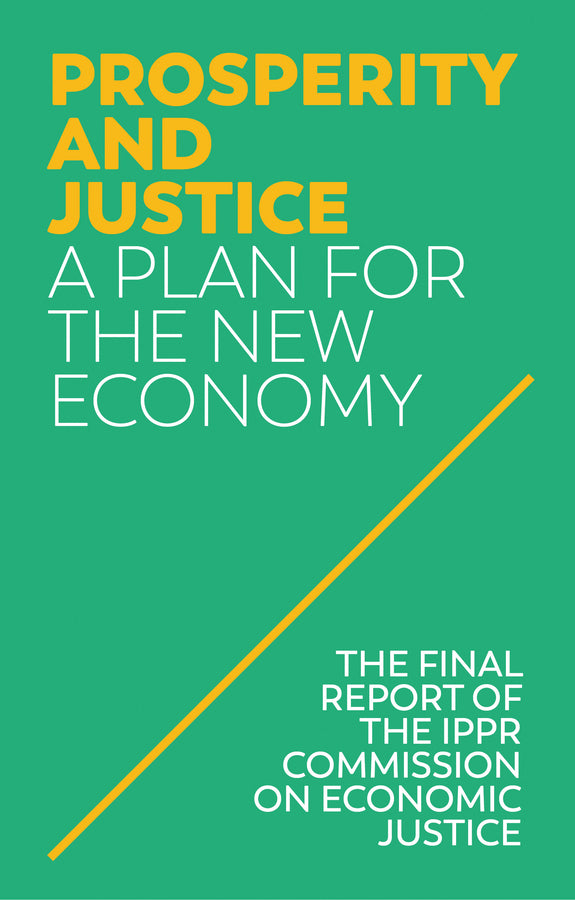Description
Discover the groundbreaking insights in 'The Final Report of the IPPR Commission on Economic Justice', a pivotal publication for anyone concerned about the current state of the UK economy. This essential book, published in 2018 by John Wiley & Sons, addresses the systemic issues that have led to rising inequality and stagnant living standards for the majority. With 220 pages of in-depth analysis, it evaluates the challenges posed by the dominance of giant digital firms, the threat of automation, and critical environmental concerns. Written by leading thinkers, this report presents a bold vision for a reformed economy that values both prosperity and justice. It advocates for radical policy changes aimed at redistributing wealth, improving job quality, and enhancing productivity. Perfect for students, policymakers, and activists, this book is an invaluable resource for understanding the necessary reforms to build a sustainable economic future. Don't miss out on this crucial read that will shape discussions around economic justice in the coming years. Note: Shipping for this item is free. Please allow up to 6 weeks for delivery. Once your order is placed, it cannot be cancelled. Condition: BRAND NEW. ISBN: 9781509534999. Year: 2018. Publisher: John Wiley & Sons (UK). Pages: 220.
Note: Shipping for this item is free. Please allow up to 6 weeks for delivery. Once your order is placed, it cannot be cancelled.
Condition: BRAND NEW
ISBN: 9781509534999
Year: 2018
Publisher: John Wiley & Sons (UK)
Pages: 220
Description:
The Final Report of the IPPR Commission on Economic Justice The UK economy is broken. It no longer provides rising living standards for the majority. Young people face an increasingly insecure future. The gap between rich and poor areas is widening. Meanwhile the rise of giant digital companies, the advance of automation, and catastrophic environmental degradation challenge the very foundations of our economic model. This important book analyses these profound challenges and sets out a bold vision for change. The report of a group of leading figures from across British society, it explains how the deep weaknesses of the UK economy reflect profound imbalances of economic power. Its radical policy agenda for the 2020s includes new missions to drive productivity and innovation, an overhaul of our financial system, and reforms to improve wages, job quality and the redistribution of wealth. Ten years after the financial crisis, as the UK confronts the challenge of Brexit, this is an urgent and compelling account of the reforms needed to build a new economy of prosperity, justice and environmental sustainability. It will set the terms of political and economic debate for years to come.
Note: Shipping for this item is free. Please allow up to 6 weeks for delivery. Once your order is placed, it cannot be cancelled.
Condition: BRAND NEW
ISBN: 9781509534999
Year: 2018
Publisher: John Wiley & Sons (UK)
Pages: 220
Description:
The Final Report of the IPPR Commission on Economic Justice The UK economy is broken. It no longer provides rising living standards for the majority. Young people face an increasingly insecure future. The gap between rich and poor areas is widening. Meanwhile the rise of giant digital companies, the advance of automation, and catastrophic environmental degradation challenge the very foundations of our economic model. This important book analyses these profound challenges and sets out a bold vision for change. The report of a group of leading figures from across British society, it explains how the deep weaknesses of the UK economy reflect profound imbalances of economic power. Its radical policy agenda for the 2020s includes new missions to drive productivity and innovation, an overhaul of our financial system, and reforms to improve wages, job quality and the redistribution of wealth. Ten years after the financial crisis, as the UK confronts the challenge of Brexit, this is an urgent and compelling account of the reforms needed to build a new economy of prosperity, justice and environmental sustainability. It will set the terms of political and economic debate for years to come.

